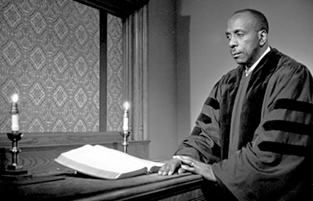“Why God Speaks to Us: To Comfort” - Pastor
Hines
March 13, 2022
It seems like Abram might have been complaining a bit when he
says to God, “O Lord God,
what will you give me, for I continue childless, and the heir of my house is
Eliezer of Damascus? ‘You have given me no offspring, and so a slave born in my
house is to be my heir.’”
Verse 6 says Abram believed God would make his name great;
the Lord reckoned it to
him, that is, the Lord credited him for believing God’s promise is good. To
believe God is to do something, to believe God is to act like you understand
that God means business. To believe is to be good as gold, to be valuable to
God’s kingdom, to believe is right living, or righteousness.
Verse 7 tells us what God does when we decide to believe. 7 Then
God said to Abram, ‘I am the Lord who
brought you from Ur of the Chaldeans, to give you this land to
possess.’ God reminds us how we have been delivered and what blessings lie
ahead for us. Have you ever been delivered and enjoyed the fulfillment of God’s
promises?
Abram put a “but” in the conversation in verse 8. 8But
Abram said, ‘O Lord God,
how am I to know that I shall possess it (the land)?’ 9God
showed him the sacrifices that were required. They were listed from large to
small. “Bring me a heifer three years old, a female goat three years old, a ram
three years old, a turtle-dove, and a young pigeon.” Abram did what he was
asked to do. Every social gathering and group, including the church, calls for
an offering, a sacrifice, a giving of something to show you value and
appreciate being a part of something important.
Sacrifices were used to affirm a covenant with God.
10Abram brought the five animals to God as requested. They were
all ceremonially clean and acceptable sacrifices according to the law. *The law
required these sacrificial animals to be one year old. But, in this case, God
requested three year old animals. Scholars have a heyday with that distinction.
Some speculate that three years symbolizes the three years of Jesus before he
was sacrificed or the three generations of what is called the Blood Covenant as
it would be for Abraham, Issac and Jacob, but not Reuben.
A covenant being legally binding, was cut like a contract or cut
like a deal. In fact, the directions were to cut the sacrifices in half,
representing the two parties - one piece on one side and the other piece beside
it. One piece represented God, the other humans. Fire and smoke passed between the
two in verse 17, representing God’s holy presence. We all know there are
contracts and covenants that are not holy, don’t we. This covenant was designed
to last three generations before it had to be reviewed, renewed, revisited, and
reworked.
Lent is OUR season to
review, renew, revisit and rework our side of our covenant with the Almighty!
What a comfort it is to serve a God who is willing to be in covenant
partnership with us, to never leave us or forsake us. God encourages us to
grow, attempts to nurture us, accepts us as we are, yet loves us too much to
leave us that way!
The God of all comfort spoke to Abram with blessings that were
bigger than life and bigger than death. The God of all comfort is ready to
bless you as well. Are you ready to receive God’s blessings of comfort and
care? Are you ready to share such blessings? Open your heart. Let it be so
today! Amen.
*https://hermeneutics.stackexchange.com/questions/30823/why-was-abraham-required-to-bring-three-year-old-offerings-sacrifices-in-genesis#







No comments:
Post a Comment